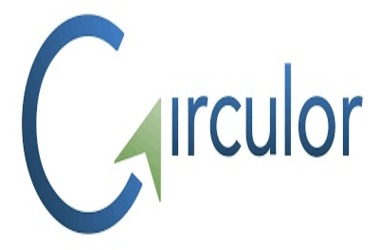
In this regard, Circulor desires to join hands with Tesla, Ford and GM. Even before the stake acquisition by its venture capital division, Volvo was piloting Circulor’s platform for more than a year.
Circulor was assisting the carmaker to confirm the origins of cobalt utilized in its batteries. Cobalt, similar to other raw materials, is alleged of being sourced in an unethical manner. Notably, Circulor is also monitoring the origins of mica, another crucial raw material used for insulation while manufacturing cars.
Circulor CEO Doug Johnson-Poensgen elaborated on the issue:
“The problem with mica is that just like cobalt, it’s got a whole plethora of charges around responsible sourcing like child labor, this time in Madagascar. So responsibly sourced mica comes from places like Russia, which is where we’re tracking it from. Yet you get stuff much more cheaply from Madagascar that’s dug up by kids in working conditions which were appalling. And clearly, those are unacceptable risks for a responsible car manufacturer.”
The investment will assist Circulor enhance its machine learning algorithms. The company is training algo so that it will differentiate between children and adults. Afterwards, it would begin using aerial imagery to ascertain whether a company has contracted children to conduct mining.
Another crucial use for Circulor is monitoring the carbon footprint of car production via distribution supply chain.
Strangely, as per Johnson, the carbon footprint of an electric car manufacturing facility is greater than a fossil fuel powered car production centre. Notably, battery contributes over 50% of carbon footprint.
“Of course, the carbon footprint between a normal car and an electric vehicle even out. But the purpose of trying to attribute carbon is to enable the car manufacturer to better engage the supply chain in order to procure sustainably alongside price and quality. That’s why the press release from Volvo also talks about CO2, because it starts with a chain of custody of materials.”
Following initial prototyping of solution on Ethereum (ETH), Circular transited to Hyperledger Fabric. Johnson details that, at the least intermittently, the transition was done because of the bias that prevailed in business circles against public blockchains:
“The reason we went with a private permissioned blockchain was partly because of prejudice by our target customers who are not used to transparency in supply chains, who have commercial sensitivities to consider between their relationships with their customers. And many of the potential customers we were speaking to certainly two and a half years ago or so, just didn’t see how a public blockchain could be configured in a way that would maintain their commercial confidentiality.”
He concedes the likelihood that in the forthcoming years sever first-generation tools may need to be redeveloped using public blockchains.
And even while utilizing permissioned blockchains, Johnson trusts that interoperability is vital as no single tool can dominate the entire automobile sector.
When questioned whether Circulor has intention to widen its customer base to include Ford, Tesla and GM, Johnson stated:
“The short answer is all of that is yes, we have. So those car manufacturers that you’ve just named will be buying batteries from the sort of battery manufacturers we’re working with. We’re just about to start onboarding to other battery manufacturers. And we have a number of battery factories who have approached us because they know about the work that we’re doing.”
As people across the globe are turning out to be more mindful of predicaments involved in manufacturing, Tesla has turned out to be most worthwhile car manufacturer in terms of market cap.
